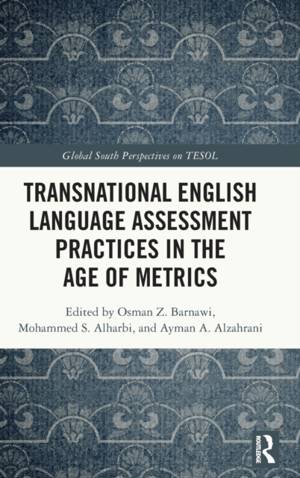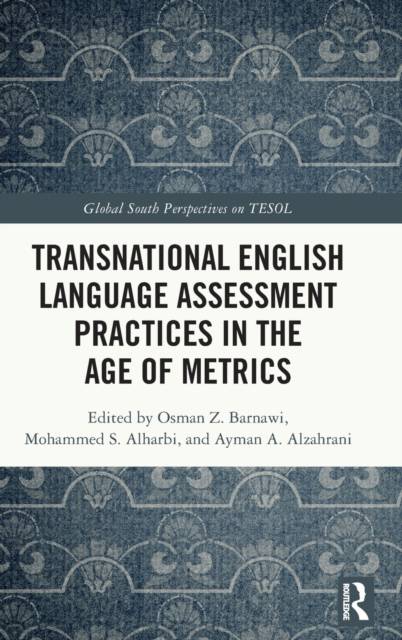
- Afhalen na 1 uur in een winkel met voorraad
- Gratis thuislevering in België vanaf € 30
- Ruim aanbod met 7 miljoen producten
- Afhalen na 1 uur in een winkel met voorraad
- Gratis thuislevering in België vanaf € 30
- Ruim aanbod met 7 miljoen producten
Transnational English Language Assessment Practices in the Age of Metrics
Omschrijving
This edited volume examines how transnational English language assessment practices are envisioned, enacted, and justified by different stakeholders, including students, teachers, and universities in different geographical contexts, and what would be the multi-level consequences of such practices.
Bringing together diverse perspectives from across the Global South and Global North, the book argues that the field of English language assessment has always been transnational, despite an absence of a research that explicitly examines English language assessment practices in relation to transnationalism. The contribution of this volume lies in filling in this critical scholarly gap. Through a wide set of epistemological, theoretical, and pedagogical interventions along with methodological orientations and analytical frameworks, the chapter authors question the social, economic, political, linguistic, and pedagogical consequences of transnational English language assessment practices in higher education (HE) settings and contexts.
Offering fresh perspectives on English language assessment practices in relation to transnationalism, this book will be of great interest to researchers, academics, and post-graduate students in the fields of applied linguistics, Teaching English to Speakers of Other Languages (TESOL), and language assessment more broadly.
Specificaties
Betrokkenen
- Uitgeverij:
Inhoud
- Aantal bladzijden:
- 268
- Taal:
- Engels
- Reeks:
Eigenschappen
- Productcode (EAN):
- 9781032169385
- Verschijningsdatum:
- 26/12/2022
- Uitvoering:
- Hardcover
- Formaat:
- Genaaid
- Afmetingen:
- 156 mm x 234 mm
- Gewicht:
- 585 g

Alleen bij Standaard Boekhandel
Beoordelingen
We publiceren alleen reviews die voldoen aan de voorwaarden voor reviews. Bekijk onze voorwaarden voor reviews.










